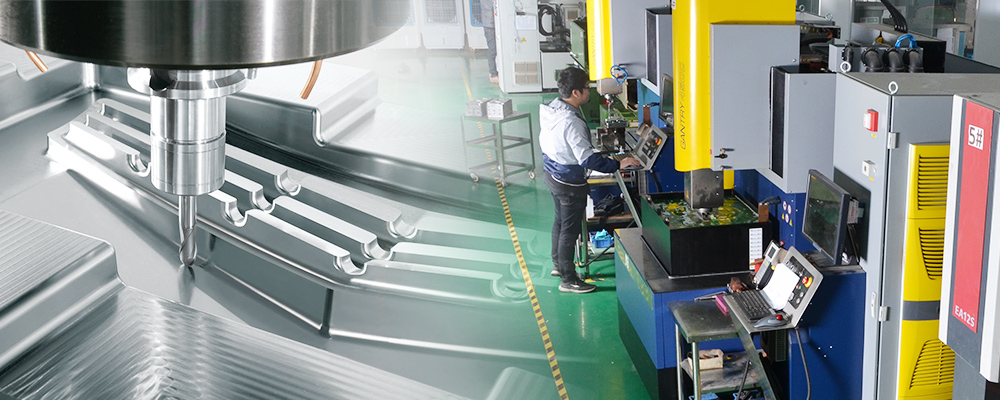Categories
New Blog
Understanding The Role And Significance Of Molds In Small Appliance Production
With the continuous development of modern technology, small appliances play an increasingly important role in our daily lives. Whether coffee machines, vacuum cleaners, UVC light air purifiers, or induction cookers, these household appliance products' manufacturing relies on a crucial component - molds. Today, we will delve into what molds are, their significance in mass production, and their role in small appliance manufacturing.
What are molds?
Molds are tools or equipment used to manufacture products or parts with specific shapes. Typically made of metal or other rigid materials, molds possess the required shape and size. Molds find wide application in manufacturing processes such as injection molding, die casting, stamping, extrusion, and fiberglass-reinforced plastic molding.
The process of mold manufacturing begins with designers creating mold design drawings based on the product's shape and functional requirements. Then, the design is transformed into an actual mold through precise mechanical machining and processing techniques. Mold manufacturing requires high-precision processes and equipment to ensure the quality and accuracy of the final product.
The significance of molds in mass production
1. Enhancing production efficiency: Molds enable fast, repetitive, and continuous production processes. Once manufactured, molds can be reused without reconstruction. Combined with automated equipment, they facilitate efficient operations on production lines, greatly improving production efficiency and capacity. Molds significantly reduce the product manufacturing cycle, allowing for quick response to market demands.
2. Ensuring product consistency and quality control: Molds guarantee the production of products with consistent shapes and dimensions in each cycle. With high precision in design and manufacturing, molds ensure product uniformity and accuracy. This ensures the delivery of high-quality products while minimizing variations caused by human factors or manufacturing changes.
3. Cost-effectiveness: Although mold manufacturing costs may be higher, they will provide long-term cost savings in mass production. Once molds are made, they can be used for substantial mass production, reducing labor and material waste. Additionally, mold manufacturing enables the adoption of more efficient production processes and equipment, resulting in reduced energy consumption and shorter production cycles, ultimately lowering costs.
4. Flexibility in expanding production capacity: By utilizing molds, manufacturers can easily scale up production capacity to meet increasing market demands. With the availability of molds, production volume can be increased by adding more molds or extending operating time. This approach is more convenient and cost-effective than other manufacturing techniques, allowing for efficient fulfillment of large orders.
The role of molds in small appliance manufacturing
· Plastic components: The outer shells and structural parts of most small appliance products, such as electric fans, humidifiers, and electric boot drying racks, are typically made of plastic. These components are commonly produced through injection molding. By heating plastic and injecting it into pre-designed molds, the cooling and solidification process yields components with diverse shapes and intricate structures. Mold design and manufacturing guarantee the accuracy, consistency, and high quality of plastic component injection molding.
· Metal parts: Certain small appliance products incorporate metal parts, such as the pot in an electric pressure cooker or the heating plate in an electric kettle. These metal parts are usually manufactured through mold casting or stamping processes. Molds are utilized to shape metal materials into parts with specific shapes and sizes.
· Circuit boards: Circuit boards play a crucial role in small appliance products. Through mold manufacturing, precise dimensions of circuit boards and consistent component assembly can be achieved. Molds are employed in the circuit board manufacturing process for component positioning and fixation, ensuring board quality and stability.
· Panels and displays: Some small appliance products require panels and displays with distinct shapes and sizes. Mold manufacturing enables the production of panels and displays that meet design requirements, ensuring consistency in product appearance and functionality.
Molds play a crucial role in the custom manufacturing of small appliances. Through molds, efficient mass production can be achieved, ensuring product consistency, quality, and cost-effectiveness. Whether used for manufacturing plastic components, metal parts, circuit boards, or panels and displays, molds provide precise, stable, and reliable manufacturing processes for small appliances. As a purchaser, understanding the importance and application of molds will help gain better insights into the manufacturing process, choose suitable small appliances manufacturing service provider, and obtain high-quality products.

Copyright © 2012-2026 Xiamen Atyou Health Technology Co., Ltd. All Rights Reserved.